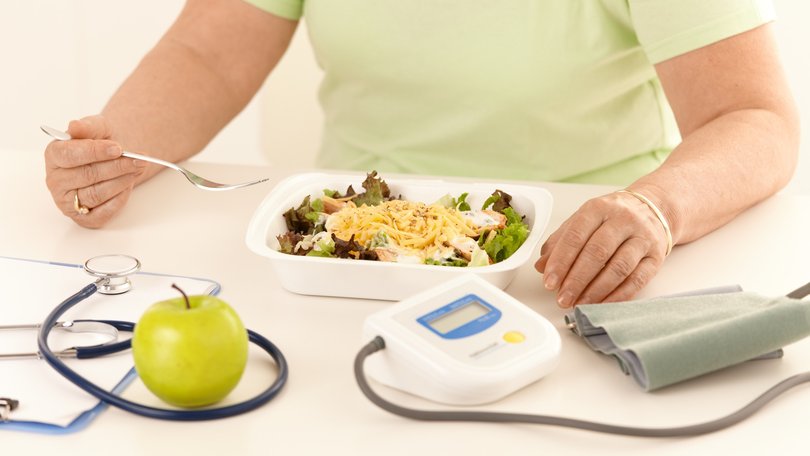SARAH DI LORENZO: Take your blood pressure down by making the right food choices for a heart-healthy diet
SARAH DI LORENZO: How fixing your food habits can protect your heart health.

Statistics show one in four Australian adults have high blood pressure, which is actually around 5 million adults. Men are more likely to have high blood pressure than women, and interestingly, only around 32 per cent of Australians have their blood pressure controlled to recommended levels.
The definition of high blood pressure, also called hypertension, is a medical condition where the force of blood pushing against the walls of your arteries is consistently too high. A blood pressure reading at or above 130/80 mm Hg is considered high.
The thing about blood pressure is that most people don’t experience symptoms — it is actually often referred to as the “silent killer”. It is only when blood pressure is extremely high (above 180/120 mm Hg) that people may have symptoms such as anxiety, chest pain, blurred vision, confusion, shortness of breath, severe headaches, nausea, vomiting, abnormal heart rhythm and dizziness. When these symptoms occur, medical attention is essential. When blood pressure is left untreated, complications such as vision loss, kidney damage, stroke and heart disease can occur.
Sign up to The Nightly's newsletters.
Get the first look at the digital newspaper, curated daily stories and breaking headlines delivered to your inbox.
By continuing you agree to our Terms and Privacy Policy.I also need to point out that if you are diagnosed with high blood pressure, I always recommend to my patients that they purchase a blood pressure machine from the chemist and start taking their blood pressure morning and night to rule out white coat hypertension. This is where your blood pressure is elevated when around a medical practitioner but is otherwise fine. I have seen many people incorrectly diagnosed in my time as a practitioner.
What we eat plays a very big role in our blood pressure risk. A heart-healthy diet is so important for lowering high blood pressure. Foods that are rich in nutrients help maintain a healthy blood pressure. Foods rich in potassium, magnesium, fibre and healthy fats are essential.
To start with the best foods, fruit and vegetables need to be consumed each day — at least two servings of fruit and five servings of vegetables. Top vegetables to include are leafy greens for their magnesium and potassium, which help reduce sodium’s effect on blood pressure. As well, try to have a serve of berries for their antioxidants and flavonoids. A banana mid-afternoon is an excellent source of potassium, and citrus like oranges provides vitamin C and potassium. Embrace beetroot, as it contains nitrates that support healthy blood vessel function.
Aim for two to three serves of whole grains per day at minimum — think oats for breakfast or some brown rice for lunch. Quinoa, whole wheat bread and pasta can also be excellent. Whole grains are rich in fibre that supports heart health and blood pressure.
When it comes to protein, go for healthy choices such as salmon, mackerel and sardines — these are high in omega-3s, benefiting the cardiovascular system. Legumes are also excellent — think beans, chickpeas and lentils. Aim for half a cup cooked a couple of times a week. The best source of protein would be chicken at 30g per 100g — just avoid the skin.
Snacking on nuts and seeds will provide magnesium, potassium and healthy fats. Aim for 30g daily. Olive oil is rich in monounsaturated fats and polyphenols and supports lower blood pressure.
Other foods to include are garlic, which contains allicin and may promote lower blood pressure, as well as carrots and potatoes for their potassium.
Other tips include minimising sodium by avoiding processed foods, choosing fresh whole foods and making meals full of flavour without added salt. Embrace the wonderful world of herbs and spices in your meals.
A comprehensive approach also addresses lifestyle. Aim to reach and maintain a healthy weight. Do regular exercise — at least 30 minutes a day of intensive activity — and be sure to add strength training to your regime. Limit or ideally avoid alcohol, as excessive drinking raises blood pressure and adds unnecessary calories. If you smoke or vape, it is time to give it away. Getting on top of stress is also important. Focus on good quality sleep, take care of your health, monitor and manage any conditions, and be sure to get regular check-ups. Early detection and a preventive approach are key to long-term health and wellness.
